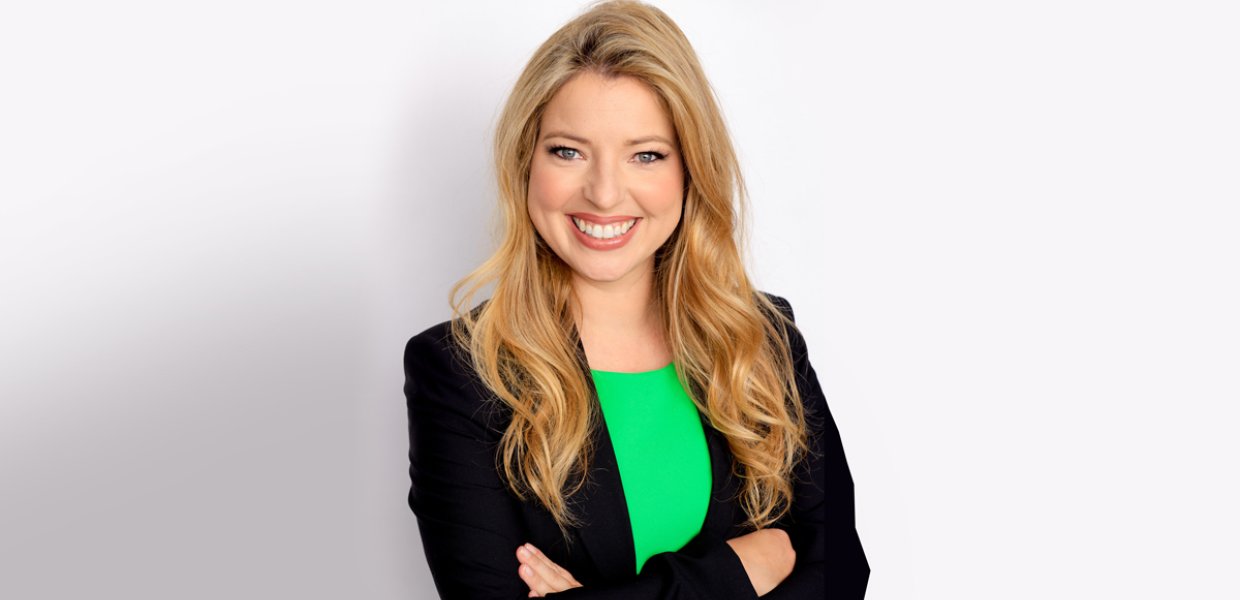Lauren Alexandra Sowa’s experience as a child actor might be atypical.
“I essentially had a full career before I started high school, and I have to say, I feel very fortunate,” she said. “I loved it, and I had nothing but positive experiences with the adults I worked with.”
Starting at only 3 years old, Sowa appeared in more than 50 commercials, including national campaigns for brands such as McDonald’s. Her award-nominated stage career in Chicago saw her act alongside luminaries such as Dick Van Patten and Marilyn McCoo.
Still, she quietly held different ambitions.
“For most people, acting is the pipe dream,” Sowa said. “But for me, it was, ‘And then I’ll get a PhD and be a professor.”
On the cusp of commencement and moving forward with her doctorate in communication from USC Annenberg, she is working toward realizing that ambition. To Sowa, acting and academia aren’t as disparate as they may seem, and storytelling is fundamental to both.
“As an actor, when I asked myself, ‘Why am I pursuing this?,’ the ultimate answer was that I love stories and I love telling them,” she said. “Today, I see myself as an academic storyteller. Whether I’m writing in an academic journal, teaching or presenting my work at a conference, that’s storytelling.”
After majoring in theatre and minoring in sociology at New York University, Sowa found the transition to adult roles less satisfying.
“I didn’t always want to audition for a role that doesn’t have depth or strength,” she said. “I was also constrained by how casting or agents saw me. I didn’t have the chance to tell the stories I wanted to tell.”
Seeing the potential for that type of freedom as a creative producer in the entertainment industry, Sowa enrolled in USC Annenberg’s Master of Communication Management program. The vision of fulfilling her scholarly dreams came into focus with the encouragement of Daniela Baroffio, clinical professor of communication, a mentor who challenged and supported her in equal measure.
“She said, ‘You like writing literature reviews a little too much. You might consider a PhD,’” Sowa said. “The fact that someone who had done it saw that in me as well, that gave me the window to imagine that this might be where I belong.”
The decision to stay at USC and focus her doctoral studies on media, production culture and fandom paid off personally.
“I’ve been happy the whole time,” Sowa said. “It’s everything I’ve wanted it to be.”
In her dissertation, she set out to explore how storytelling in the longest-running scripted live-action series on American television, Law and Order: SVU, reflected major shifts in society.
“I talk about the show as a whole rather than one episode or scene,” she said. “It’s popular, which means it’s hitting people in a really important way. For part of the audience, it’s their introduction to the legal system and how police investigations work.”
Sowa discovered that — despite the show’s “ripped from the headlines” reputation — shifts in tone, style, narrative and content tracked not with the cultural moment but rather with changeovers in showrunners, the people with direct creative control.
“It completely changed the dissertation,” she said. “I expected one thing and found another. But, as important as hypotheses are, I like to go in with curiosity, and see, ‘What does this mean?”
The term “showrunner” may have migrated into common parlance, but it never appears as such in TV credits. And although many may assume that Dick Wolf, SVU’s creator, controls what happens onscreen, Sowa showed that noncelebrity showrunners — and their personal backgrounds — substantially color which issues are addressed, and how.
“We generally don’t know the names of these individuals,” Sowa said. “It’s not talked about, but they’re the ones dictating what happens to every character we watch.”
After auditioning for the role of assistant professor, Sowa has been offered the part and will start this Fall. In parallel, she will soon launch her own consultancy, Talk the Talk, using what she learned as a young actor to help academics and others sharpen their presentation and interviewing skills.
As she builds on her experience at USC Annenberg, Sowa looks forward to a future where she’s in charge of the narrative.
“I feel just as alive presenting at a conference or teaching a new concept to my students as I did performing on stage,” she said. “Except now I get to decide where it goes. I’m the showrunner of my academic life, and it’s exactly what I want.”
